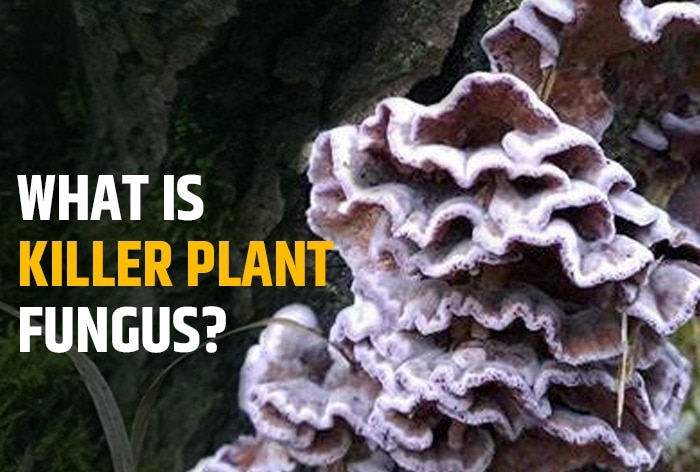According to report, a serious disease known as Killer Plant Fungus infected a man in Kolkata, making it the world’s first case.

Killer Plant Fungus: Whether it was the Covid-19 pandemic or the Ebola virus, the last ten years have seen a number of unprecedented health crises. Seasonal viruses have developed a mutation that is causing a health emergency. The world has seen it all, whether it was the H3N2 influenza, monkeypox, or the Marburg virus. Now this time it’s another major virus that is causing severe stir among humans. According to a report, a serious disease known as Killer Plant Fungus infected a Kolkata man, making it the world’s first case. The man was diagnosed with a fungal disease that generally infects plants. The patient was a plant mycologist and researchers used his case to find out that diseases which only affect plants can infect humans as well.
What is Killer Plant Fungus?
A plant fungus called Chondrostereum purpureum attacks plants, especially those in the rose family, and causes silver leaf disease. The progressive silvering of the leaves on afflicted branches gave rise to the disease’s name. The fungus is a typical plant pathogen that is known to cause harm in fruit trees such as apples, cherries, and plums. It is typically spread through the spores produced by infected plants and can survive in soil for several years. In humans, it is an extremely rare cause of infection. But, this is the first instance of a plant fungus causing disease in a human.
What Are The Symptoms?
The symptoms of Killer Plant Fungus included a hoarse voice, cough, fatigue, anorexia and difficulties swallowing. According to sciencedirect.com website that shared the research report, “Hosts with compromised immune system are most vulnerable to fungal infection but healthy and immunecompetent individuals are also frequently reported to have fungal infections. In this situation the infections may be associated with exposure to a large inoculum.”
Should Humans be Worried?
Researchers said that while this was a very rare case, recurrent exposure to the decaying material may be the cause of this infection. Since the patient was a plant mycologist, he may be working closely with infected plants. “This fungal infection was evident from macroscopic and microscopic morphology but the nature of the infection, the potentiality to disseminate etc. could not be ascertained. Even when the sequencing report identified it as a plant fungus a few weeks later but still literature search failed to reveal any reports of such infection in human subjects,” said the report. Thus, there is no need to worry for human beings.
According to the doctors who treated the patient, “Recurrent exposure to the decaying material may be the cause of this rare infection.” While fungal infections in humans are very rare, this case highlights the importance of taking necessary precautions when working with plant fungi to avoid cross-potential infections.
Stay connected with us on social media platform for instant update click here to join our Twitter, & Facebook
We are now on Telegram. Click here to join our channel (@TechiUpdate) and stay updated with the latest Technology headlines.
For all the latest Lifestyle News Click Here
